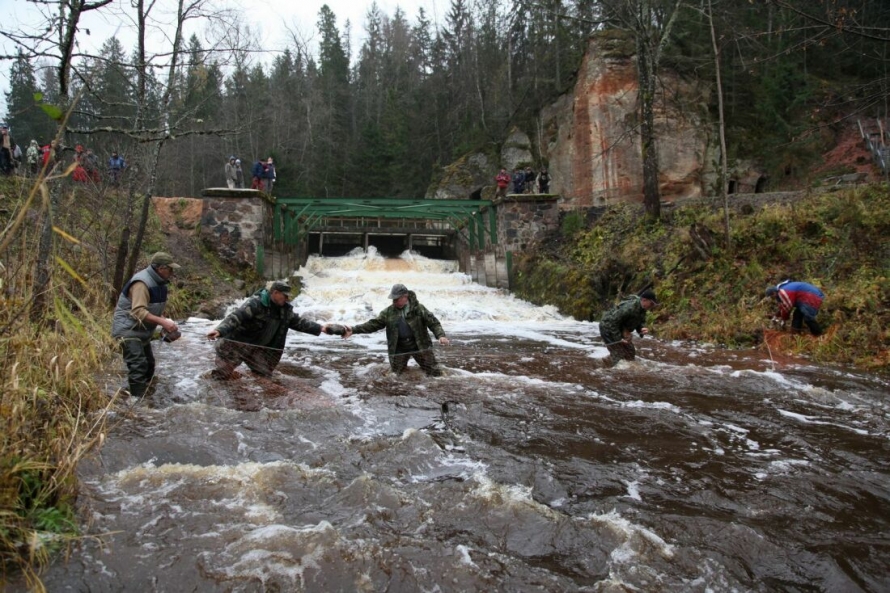State Environmental Service (VVD) wildlife inspectors have geared up for intensified control of Latvia’s domestic fresh- and sea-waters to prevent the illegal fishing of these species. The increased presence of VVD enforcement patrols will be stationed along the spawning grounds in the Brasla, Gauja, Salaca and Venta rivers, as well as several smaller tributaries that flow into the Gulf of Riga and Baltic Sea.
Major rivers the Daugava and Lielupe are also subject to the ban, however in these waters the salmon and trout populations are maintained artificially.
According to VVD spokeswoman Jūlija Ņikitina, the ban on extracting the fish from riverbeds will last until November 30, while their seabed breeding grounds will be again open to fishing from November 15.
As Ņikitina explained, the protection of salmon during the autumn months is critical because only a tiny portion of the spawned juveniles ever survive to enter the sea and then migrate back to their natural spawning grounds to continue the species as mating adults.

Salmon are a migratory fish that lives and feeds in the sea, but upon reaching maturity must spawn in upriver environments. The laid eggs then hatch in April, after which the juveniles remain in the rivers for two to three seasons until they mature into smolts ready to migrate into the briny seawaters.
Last year’s VVD statistics show that the highest number of fishing and angling violations happened precisely during the spawning season.

Altogether in 2013 the VVD collected €126,873 in fines on illegal fishing. Damage to the fish resource pool was assessed at €73,108. Already in the first half of 2014 such losses to the salmon and trout resources reached €32,310, while fines have been assessed at €28,064.
The fine for one illegally obtained salmon or trout specimen is €143 per person. However in the Daugava and Buļļupe rivers it is permitted to keep just one caught specimen of each species because their populations are not kept in natural breeding grounds.

Meanwhile Wednesday the World Wide Fund for Nature (WWF) released its biennial 2014 Living Planet Report on global wildlife populations, which it reports have declined by more than half in just 40 years.
According to the report, populations of fish, birds, mammals, amphibians and reptiles have declined by 52 per cent since 1970. Freshwater species have suffered a 76 per cent decline, an average loss almost double that of land and marine species.
With the theme Species and Spaces, People and Places, the report tracks over 10,000 vertebrate species populations from 1970 to 2010 through the Living Planet Index – a database maintained by the Zoological Society of London.
“The scale of biodiversity loss and damage to the very ecosystems that are essential to our existence is alarming,” said Ken Norris, Director of Science at the Zoological Society of London. “This damage is not inevitable but a consequence of the way we choose to live. Although the report shows the situation is critical, there is still hope. Protecting nature needs focused conservation action, political will and support from industry.”





























